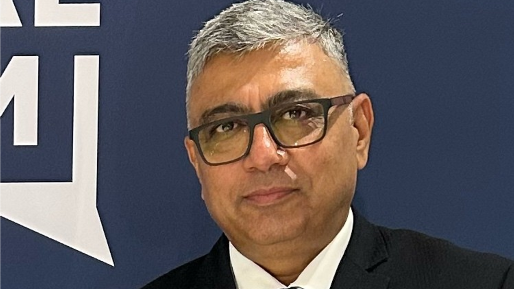India's pharma sector is evolving from generics to global leadership in biologics, peptides, and biosimilars. With MSME innovation, FTAs, API diplomacy, and strategic investment, it’s poised to drive the $1T export vision and reshape global healthcare.

Over the past two decades, India’s pharmaceutical industry has evolved from a supplier of affordable generics to becoming a trusted global partner in complex therapies and essential drug manufacturing. It is currently at a pivotal point in its history, where strategic changes in manufacturing, trade, and innovation are supporting the nation's overarching goal of turning into a $1 trillion export economy. Already one of India's largest exporters, pharmaceuticals are now anticipated to be a key player in this process, not only in terms of volume but also in terms of value-added growth in immunotherapy, biologics, peptides, and biosimilars. These developments align with the Indian government's efforts to increase the number of micro, small, and medium-sized businesses (MSMEs) that drive specialised innovation, remove non-tariff barriers (NTBs), strengthen supply chains through API diplomacy, and expand Free Trade Agreements (FTAs). The confluence of these efforts reflects not just an industry milestone but a national aspiration—to cement India’s global leadership in next-generation healthcare solutions.
A key component of India's pharmaceutical export strategy is the signing and negotiating of comprehensive free trade agreements with nations like the EU, UK, Australia, and the UAE. These agreements lower tariffs, simplify compliance and customs procedures, and give Indian manufacturers more access to regulated markets. For instance, the India-UK free trade agreement, which was reached in principle in May 2025, intends to remove tariffs on 99 percent of Indian exports, including high value pharmaceuticals. Similar to this, it is anticipated that the India-EU free trade agreements, which are currently progressing through chapters on intellectual property, customs, and regulatory cooperation, will allow the export of biologics and biosimilars to some of the world's most demanding pharmaceutical markets. Eliminating NTBs, such as redundant testing procedures, postponed market approvals, and inconsistent packaging standards, improves speed-to-market and cost efficiency for Indian pharma exporters.
As much as the bigger Indian pharmaceutical companies are trying to make a mark in the international market, it is the MSME sector that is responsible for India’s capability towards innovation in peptide synthesis, specialty APIs, and even CDMO services. The Market Access Initiative (MAI) and Production Linked Incentive (PLI) are some of the government aids which have allowed smaller players to market and adopt global manufacturing standards and build marketing linkages abroad. In the pharma hubs of Gujarat, Maharashtra, and Andhra Pradesh, MSME clusters are performing high-quality exports of the molecules which are increasingly being used therapeutically in nephrology, endocrinology, and oncology.
The sudden increase in focus towards strengthening India’s role and capabilities in the global pharmaceutical supply chain is an effect of the recent global health emergencies. India is using diplomatic actions and collaborations like India-U.S. Trade Policy Forum, TRUST (Trade Related Transparency and Understanding in Standards and Testing), to directly position itself as a reliable long term supplier of essential APIs. Along with these initiatives, there is also a significant increase in investments towards Domestic API manufacturing hubs, Fermentation based production capacities, and bulk drug parks national schemes. Together, these measures are not only reducing dependence on external sources for critical raw materials but also ensuring stable and scalable production of high-value therapies, particularly in the biologics, biosimilars, and peptide segments. This approach aligns with India’s broader vision of becoming a cornerstone in global pharmaceutical resilience and therapeutic innovation.
The shift of India’s pharmaceuticals sector is moving from traditional generics to science-based value-added products. One of its most promising segments is biosimilars whose exports are anticipated to surge from $0.8 billion to over $4 billion by 2030. Supported with advancements in cell line development, fermentation technologies, and compliance with global standards, Indian firms are expanding their biologics portfolio. Indian CDMOs are also increasingly interested in peptides that serve in metabolic and hormonal therapies owing to their limited volume but significantly high value. Moreover, there is growing focus from both innovators and policymakers on immunotherapy for oncological and autoimmune conditions, and there are some exploratory joint venture, tech transfer, and contract research opportunities in India for this segment.
The changing nature of trade is creating opportunities, but it also brings with it complicated intellectual property (IP) issues. Extended data exclusivity and patent linkage provisions have been proposed by a number of FTA partners, which may postpone the arrival of generics and biosimilars. India has adopted a balanced approach, defending its right to guarantee the affordability of medications while encouraging innovation. The government's determination to strike a balance between export goals and public health requirements is demonstrated by its refusal to accept data exclusivity in trade negotiations with the UK and EFTA.
As the world moves toward more personalized and biologically advanced treatments, India is well-positioned to lead—not just in terms of scale, but in shaping the future of global pharmaceutical innovation. Strategic investments in therapeutic innovation, dismantling export hurdles, increasing MSME capabilities, and attaining balanced trade agreements all serve to prep the industry for considerable impact and scope. Achieving the goal of $1 trillion in exports requires decisive coordinated action, but with the right partnership framework, policy, and innovation, India’s pharmaceutical industry will not only lead the next global shift in healthcare—it's fully prepared to transform international healthcare systems.
By continuing you agree to our Privacy Policy & Terms & Conditions
